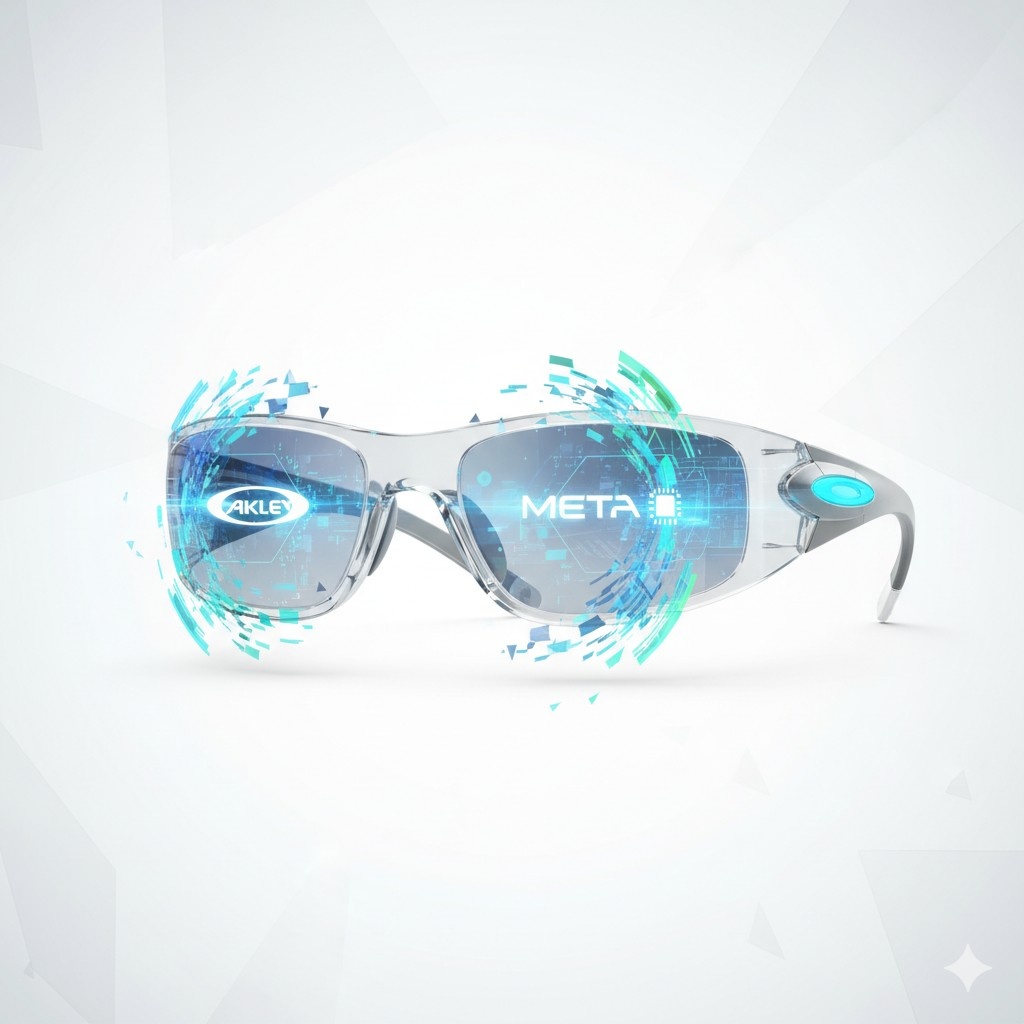Oakley Meta Glasses: Meta and Oakley Launch Performance AI Eyewear for Athletes

Meta and EssilorLuxottica have officially launched Oakley Meta, a new line of performance AI glasses designed for athletes and outdoor enthusiasts. The first model, the Oakley Meta HSTN, was revealed in June 2025, offering 3K video recording, built-in Meta AI, and rugged features for active use. Later, Meta expanded the lineup with the Oakley Meta Vanguard, targeting runners, cyclists, and high-intensity sports fans.
Background / Context
Meta’s entry into smart eyewear isn’t new — the company previously teamed up with Ray-Ban to produce smart glasses that blend fashion and function.
Building on that success, Meta has now deepened its partnership with EssilorLuxottica, the parent company of both Oakley and Ray-Ban, to bring a sport-centric wearable to market.
Key Developments / Details
Product Launch: Meta and Oakley officially announced the Oakley Meta HSTN on June 20, 2025.
Pricing & Availability:
Limited-edition gold-accent HSTN: $499, preorder began July 11.
Standard HSTN models: start at $399, with broader availability later in the summer.
Regions: U.S., Canada, UK, several European countries, Australia, and more.
New Model – Vanguard: At Meta Connect 2025, Meta introduced the Oakley Meta Vanguard:
Camera: 12 MP, 122° wide-angle, up to 3K video
Audio: Louder open-ear speakers than the HSTN
Battery: ~9 hours usage, 36-hour additional charge via case, 20-minute fast top-up
Durability: IP67-rated for water and dust
Integration: Syncs with Garmin and Strava for fitness tracking; overlays metrics like heart rate on captured video.
Controls: Programmable button under the frame; designed to be helmet-friendly.
Colors: Four frame/lens options, including PRIZM variants.
Launch: Available beginning October 21, 2025, in multiple countries.
Technical Explanation
Meta AI Integration: The glasses let users speak voice commands: ask weather questions, take videos, translate languages, or identify surroundings.
Lens Tech – PRIZM: Some versions use Oakley’s PRIZM lenses, which are tuned to enhance contrast in different lighting — helpful for sports, changing sunlight, or varied terrain.
Camera & Audio: A front-facing camera captures a wide field of view; open-ear speakers allow you to hear ambient sound (important for safety during activity) while listening to music or Meta AI responses.
Charging: The glasses support fast charging (50% in 20 minutes) and come with a charging case that extends battery life significantly.
Business Today
Implications
For Athletes & Outdoors People: These glasses offer a hands-free way to record action, track fitness metrics, and interact with AI without pulling out a phone.
Wearable Tech Market: Oakley Meta marks a deeper push by Meta into specialized wearables, beyond lifestyle or fashion — targeting serious activity users.
Brand Synergy: The collaboration leverages Oakley’s design credibility in sports eyewear and Meta’s software strength, potentially bringing smart glasses to a more mass-market athletic audience.
Challenges / Limitations
Battery Life Trade-Offs: While 8–9 hours is strong, continuous high-resolution video or frequent AI usage may drain the battery faster than typical use.
Water Resistance Ratings: The HSTN model has IPX4, which protects against splashes but may not hold up in heavy rain or full submersion.
Comfort & Fit: Some users have reported concerns — for example, fit under helmets or comfort for long sessions.
Privacy Concerns: As with any device with a camera and mic, there could be questions around recording and data collection.
Future Outlook
Meta is expanding its smart eyewear lineup: beyond HSTN and Vanguard, it’s reportedly working on higher-end glasses with displays, gesture controls, and more advanced features.
Wider global rollout: While the initial launch covers several countries, Meta and Oakley plan broader international expansion later.
Software improvements: Firmware updates and app enhancements (such as better integration with fitness platforms or AI features) could deepen the user experience.
Competitive pressure: As other companies (e.g., Snap, Google) ramp up wearable innovation, Meta’s athletic smart glasses will need to keep evolving to stay relevant.
Conclusion
The Oakley Meta smart glasses represent a compelling next step in wearable tech: a true performance AI tool for athletes and active users. With high-res video, voice-powered assistance, and rugged design, they’re not just a niche gadget — they could reshape how we capture, train, and stay connected while on the move. As Meta continues to expand its wearable ambitions, these glasses may be a key bridge between smart eyewear as novelty and smart eyewear as utility.